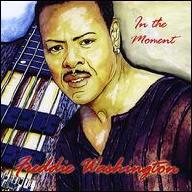In addition, a certain amount of rebellion occurred among the uninjured able to literally carry the weight. A typical example would be one of the volunteers wasting time on cell phone calls to friends in which comments would be made to the effect of "Here I studied musicology for five years and now I am standing around squeezing Patrice Rushen records." Any possible merit of these studies was further erased by a report on the material used to fabricate album covers during certain decades, proving without a doubt that during the fusion and disco eras, thicker and glossier stock was used as a matter of course, with various interpretations as to the record companies' reasons for such action. "Much of this music was associated with making out or 'gliding'," offered a scholar whose area of expertise also includes exploitation films, some of which coincidentally or not feature Washington playing bass on the soundtrack. "It is clear that these album covers were manufactured in order to double as cushions of a sort during sessions of lovemaking." Squeezing said material would simply not be the same as squeezing a plain old album cover, obviously.
Romantic music is without a doubt one of the key elements in the sort of sessions that this artist has become involved in as well as his songwriting collaborations, despite the fact that one of the best-known songs he contributed to was the title theme from #Men in Black and concerned alien invasion. Other titles in the Washington catalog include the sensory Feels So Real (Can't Let Go), the memorable Forget Me Not, and the inquisitive Haven't You Heard, all part of the aforementioned Rushen's hit bag as well as having been covered frequently by other rhythm and blues and jazz-lite artists. During the '90s, Washington and Rushen were part of a popular rhythm section known as the Meeting, and more recently the bassist has toured with Steely Dan. Washington has also co-written gospel songs, performing on sessions by groups in this genre such as the Winans. ~ Eugene Chadbourne, Rovi

















